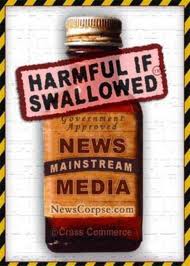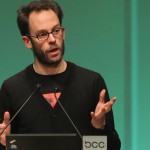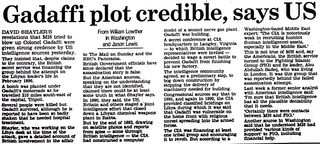Whistleblowers want the sun and the moon — or at least they want to get their information out there, they want to make a difference, they want a fair hearing, and they don’t want to pay too high a personal price for doing so.
Is that too much to ask? The decision to expose criminality and bad practice for the public good has serious, life-changing implications.
By going public about serious concerns they have about their workplace, they are jeopardising their whole way of life: not just their professional reputation and career, but all that goes with it, such as the ability to pay the mortgage, their social circle, their family life, their relationship… Plus, the whistleblower can potentially risk prison or worse.
 So, with these risks in mind, they are certainly looking for an avenue to blow the whistle that will offer a degree of protection and allow them to retain a degree of control over their own lives. In the old days, this meant trying to identify an honourable, campaigning journalist and a media organisation that had the clout to protect its source. While not impossible, that could certainly be difficult, and becomes increasingly so in this era of endemic electronic surveillance.
So, with these risks in mind, they are certainly looking for an avenue to blow the whistle that will offer a degree of protection and allow them to retain a degree of control over their own lives. In the old days, this meant trying to identify an honourable, campaigning journalist and a media organisation that had the clout to protect its source. While not impossible, that could certainly be difficult, and becomes increasingly so in this era of endemic electronic surveillance.
Today the other option is the secure, high-tech publishing conduit, as trail-blazed by Wikileaks. While this does not provide the potential benefits of working with a campaigning journalist, it does provide anonymity and a certain degree of control to the modern whistleblower, plus it allows their information to reach a wide audience without either being filtered by the media or blocked by government or corporate injunctions.
As someone who has a nodding acquaintance with the repercussions of blowing the whistle on a secret government agency, I have liked the Wikileaks model since I first stumbled across it in 2009.
 As with most truly revolutionary ideas, once posited it is blindingly obvious.
As with most truly revolutionary ideas, once posited it is blindingly obvious.
Never before has this been technically possible — the idea that a whistleblower’s information could be made freely available to the citizens of the world, in order to inform their democratic choices, with no blockage, not censorship, no filtering or “interpretation” by the corporate media.
This is particularly relevant in an age when the global media has been consolidated in the hands of a few multinationals, and when these multinationals have a certain, shall we say “cosy”, relationship with many of top our politicians and power elites.
The control of the mainstream media by the spooks and governments has been the focus of many of my recent talks. These corrupt inter-relationships have also been recently laid bare with the News International phone-hacking scandals.
The days of garnering news from one favoured paper or TV bulletin are long gone. Few people now trust just one media outlet — they skip across a variety of news sources, trying to evaluate the truth for themselves. But even that can be problematic when something big occurs, such as the “justification” for the invasion of Iraq or Libya, and the current beat of war drums against Iran, when the corporate media mysteriously achieves a consensus.
Hence the democratic disconnect, hence the distrust, and hence (in part) the plummeting profits of the old media.
Wikileaks is based on a simple concept — it allows the people to read the source material for themselves and make up their own minds based on real information. This led to exposure of all kinds of global nasties way before the massive 2010 US data-dump.
Despite this approach, the impact was initially subdued until Wikileaks collaborated with the old media. This, as we all know, did indeed produce the coverage and awareness of those issues deemed important as it was filtered through the MSM. This has also inevitably lead to tensions between the new model hacktivists and the old-school journalists.
 No government, least of all the USA, likes to have demands for justice and transparency forced upon it, and the push back since 2010 has been massive across the world in terms of an apparently illegal financial blockade, opaque legal cases and a media backlash. Certain of Wikileaks’s erstwhile media partners have collaborated in this, turning on one of their richest sources of information in history.
No government, least of all the USA, likes to have demands for justice and transparency forced upon it, and the push back since 2010 has been massive across the world in terms of an apparently illegal financial blockade, opaque legal cases and a media backlash. Certain of Wikileaks’s erstwhile media partners have collaborated in this, turning on one of their richest sources of information in history.
However, Wikileaks is more than a media source. It is a whole new model — a high-tech publisher that offers a safe conduit for whistleblowers to cache and publicise their information without immediately having to overturn (and in some cases risk) their lives.
For this work, Wikileaks has over the years won a number of internationally prestigious journalism awards.
Inevitably, critics in the mainstream media seem to want to have their cake and eat it too: one early partner, the New York Times, has written that it doesn’t recognise Wikileaks as a journalist organisation or a publisher — it is a source, pure and simple.
Either way, by saying this the media are surely shooting themselves in the corporate feet with both barrels. If Wikileaks is indeed “just” a source (the NYT seems to be blithely forgetting that good journalism is entirely dependent on its sources), then the media are breaking their prime directive: protect a source at all costs.
However, if Wikileaks is a journalism or publishing organisation and as such is being targeted by the US government, then all other media are surely equally at risk in the future?
By not standing up for Wikileaks in either capacity, it appears that the old media have a death wish.
Over the years whistleblowers around the world have demonstrated their trust in Wikileaks, as it was set up by someone emerging from the original bona fide hacker community. And rightly so — let’s not forget that no source has been exposed through the failure of the organisation’s technology.
Many media organisations rushed to emulate its success by trying to set up their own “secure” whistleblowing repositories. What the media execs failed to understand was the hacker ethos, the open source mentality: they went to their techie department or commercial IT service providers and said “we want one”, but failed to understand both the ethos and the security concerns around closed, proprietary software systems, often channelled through the post-Patriot Act, post-CISPA USA.
Other, apparently well-meaning organisations, also tried to emulate the Wikileaks model, but most have died a quiet death over the last year. Perhaps, again, for want of real trust in their origin or tech security?
Why on earth would any security-conscious whistleblower, emerging out of a government, military or intelligence organisation, trust such a set-up? If someone comes out of such an environment they will know all-too-well the scale of the push-back, the possible entrapments, and the state-level resources that will be used to track them down. They either need an über-secure whistleblowing platform, or they need journalists and lawyers with fire in their belly to fight the fight, no matter what.
 So now to OpenLeaks — apparently the brainchild of Wikileaks defector Daniel Domsheit-Berg. He and the shadowy “Architect” famously fell out with Julian Assange in late 2010, just when the political heat was ramping up on the organisation. They left, reportedly taking some of the crucial coding and a tranche of files with them, and Domsheit-Berg decided to set up a rival organisation called OpenLeaks. As a result of his actions, Domsheit-Berg was uniquely cast out of the international hacker group, the CCC in Berlin.
So now to OpenLeaks — apparently the brainchild of Wikileaks defector Daniel Domsheit-Berg. He and the shadowy “Architect” famously fell out with Julian Assange in late 2010, just when the political heat was ramping up on the organisation. They left, reportedly taking some of the crucial coding and a tranche of files with them, and Domsheit-Berg decided to set up a rival organisation called OpenLeaks. As a result of his actions, Domsheit-Berg was uniquely cast out of the international hacker group, the CCC in Berlin.
He now seems to have been welcomed back into the fold and OpenLeaks appears, finally, to be ready to receive whistleblower information.
However, there is a crucial difference between the two organisations. Where Wikileaks wants to lay the information out there for public evaluation, OpenLeaks will merely act as a repository for certain approved mainstream media organisations to access. We are back to the original blockage of the corporate media deciding what information we, the people, should be allowed to ingest.
I would not wish to comment on Domsheit-Berg’s motivation, but to me this seems to be an even worse option for a whistleblower than directly contacting a campaigning journalist with a proven track record of covering hard-core stories and fighting for the cause.
 With OpenLeaks, the whistleblower loses not only the automatic widespread dissemination of their information, but also any semblance of control over which journalists will be working on their story. Their information will be parked on the website and anyone from pre-selected media organisations will be able to access, use and potentially abuse it.
With OpenLeaks, the whistleblower loses not only the automatic widespread dissemination of their information, but also any semblance of control over which journalists will be working on their story. Their information will be parked on the website and anyone from pre-selected media organisations will be able to access, use and potentially abuse it.
One could say that OpenLeaks operates as a secure staging platform where a whistleblower can safely store sensitive documents and information.… but the founder allegedly removed and destroyed sensitive files from Wikileaks when he jumped ship in 2010. Could any whistleblower really trust that OpenLeaks would not similarly “disappear” shit-hot information in the future?
Plus, there is the added worry for any rightly-paranoid whistleblower that the founder of OpenLeaks so easily abandoned Wikileaks when under pressure. Who’s to say that this would not happen again, if the full might of the Pentagon were brought to bear on OpenLeaks?
OpenLeaks offers neither the personal support of working with a trusted journalist and a media organisation with the clout to fight back, nor does it provide full disclosure to the wider public to side-step potential media self-censorship and government law suits, as the original Wikileaks model does.
As such OpenLeaks seems, at least to this particular whistleblower, to be an evolutionary blip — a retrograde step — in the quest for justice and accountability.











